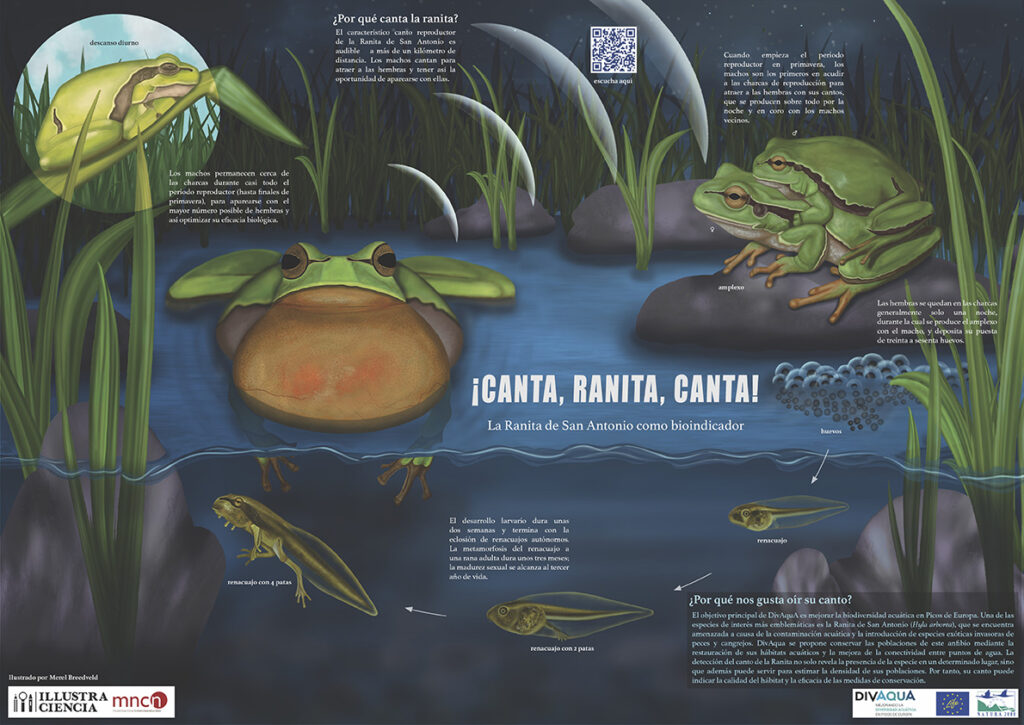Why does the frog call?
The distinctive mating song of the Iberian tree frog is audible at a distance of more than one kilometre. The males sing to attract the females and gain the opportunity to mate with them.
The males stay close to the ponds for almost all of the reproductive period (until late spring) in order to mate with the highest possible number of females and thus optimise their fitness.
When the mating season begins in spring, the males are the first to head for the reproduction pools to attract the females with their calling, which mostly takes place at night in chorus with their fellow males.
The females generally only stay in the ponds for one night, during which amplexus with the male takes place, and they lay thirty to sixty eggs.
Larval development takes around two weeks and ends with the hatching of independent tadpoles. The metamorphosis of the tadpole into an adult frog takes around three months, and sexual maturity is reached in the third year of life.
